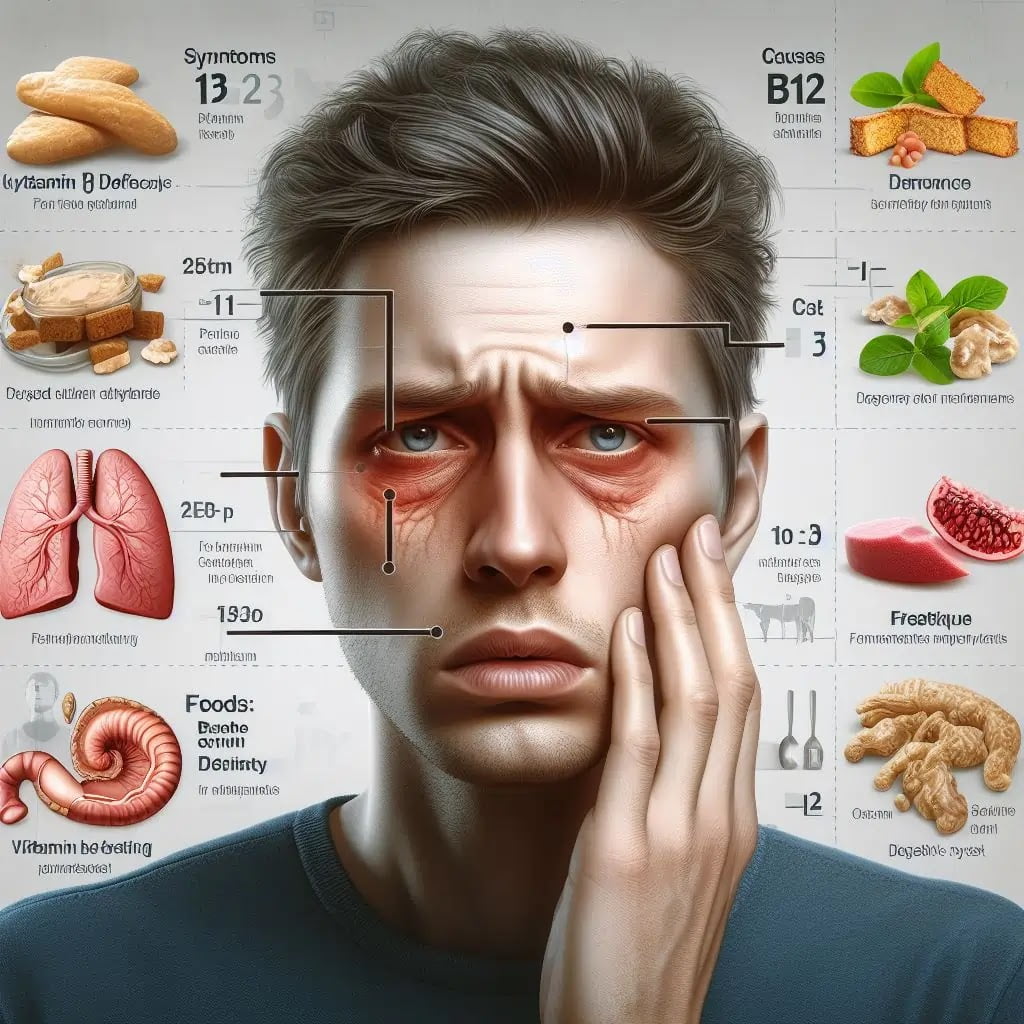You may think that weight gain is simply a matter of eating too much and moving too little. But sometimes, other factors can make you pack on the pounds without you realizing it. Some of these factors are related to your age, health, medications, or even your gut bacteria. In this article, we’ll uncover 15 hidden causes of weight gain and how to avoid or reverse them.
1. Losing Muscle Mass
As you age, you tend to lose muscle mass, which lowers your metabolism and makes you burn fewer calories. To prevent this, you need to do some resistance training exercises at least twice a week, along with some cardio activities. This will help you preserve your muscle mass, increase your metabolism, and keep your weight under control.
2. Feeling Stressed
Chronic stress can make you gain weight by raising your levels of cortisol, a hormone that stimulates your appetite and promotes fat storage. Stress can also make you crave comfort foods that are high in sugar, fat, and calories. To cope with stress, you need to find healthy ways to relax, such as meditation, yoga, breathing exercises, or hobbies. You can also try to reduce the sources of stress in your life, such as work, relationships, or finances.
3. Sleeping Poorly
Lack of sleep can mess up the hormones that regulate your hunger and fullness signals. When you don’t get enough sleep, you tend to feel hungrier, eat more, and store more fat. To improve your sleep quality, you need to follow a regular sleep schedule, avoid caffeine, alcohol, and nicotine before bed, limit your screen time at night, and make your bedroom dark, quiet, and comfortable.
4. Having Low Sex Hormones
Both men and women experience a decline in sex hormones as they age. In women, low estrogen levels can cause sleep problems and increased body fat. In men, reduced testosterone levels are linked to less muscle mass and more belly fat.
To balance your hormones, you may need to consult your doctor and consider hormone replacement therapy or natural supplements.
5. Taking Certain Medications
Some medications can cause weight gain as a side effect, either by increasing your appetite, slowing down your metabolism, or causing fluid retention. Some of the common culprits are antidepressants, steroids, antihistamines, diabetes drugs, and birth control pills. To avoid this, you may need to talk to your doctor and see if you can switch to a different medication or adjust your dosage.
6. Eating Too Much Salt
Salt can make you gain weight by making you retain water, which adds to your body weight and makes you feel bloated. Salt can also make you thirsty, which can lead you to drink more sugary beverages or confuse thirst with hunger. To
reduce your salt intake, you need to avoid processed foods, fast foods, canned foods, and sauces that are high in sodium. You can also use herbs, spices, lemon juice, or vinegar to flavor your food instead of salt.
7. Having a Thyroid Problem
Your thyroid is a gland that produces hormones that regulate your metabolism, energy, and growth. If your thyroid is underactive (hypothyroidism), it can slow down your metabolism and make you gain weight. If your thyroid is overactive (hyperthyroidism), it can speed up your metabolism and make you lose weight. To diagnose and treat a thyroid problem, you need to see your doctor and get a blood test and medication.
8. Eating Too Fast
Eating too fast can make you gain weight by preventing you from noticing your fullness cues. It takes about 20 minutes for your brain to register that you’re full, so if you eat too fast, you can end up eating more than you need. To eat more
slowly, you need to chew your food well, put down your fork between bites, sip water, and avoid distractions such as TV, phone, or computer.
9. Having a Food Intolerance
A food intolerance is a condition where your body cannot properly digest or absorb certain foods, such as gluten, dairy, eggs, or soy. This can cause inflammation, bloating, gas, diarrhea, or constipation, which can affect your weight. To identify and avoid a food intolerance, you need to keep a food diary and track your symptoms, or do an elimination diet and reintroduce foods one by one.
10. Drinking Too Much Alcohol
Alcohol can make you gain weight by adding extra calories, stimulating your appetite, and impairing your judgment. Alcohol can also interfere with your liver function, which can affect your metabolism and hormone balance. To limit your alcohol intake, you need to follow the recommended guidelines, which are no more than one drink per day for women and two drinks per day for men. You can also choose lower-calorie drinks, such as light beer, wine, or spirits with water or diet soda.
11. Having a Slow Digestion
Your digestion is the process of breaking down food and absorbing nutrients. If your digestion is slow, it can cause food to stay longer in your stomach and intestines, which can make you feel full and bloated. It can also affect your gut bacteria, which can influence your weight. To improve your digestion, you need to eat more fiber, drink more water, exercise regularly, and take probiotics or digestive enzymes.
12. Skipping Breakfast
Skipping breakfast can make you gain weight by making you hungrier, lowering your metabolism, and increasing your cravings. Skipping breakfast can also affect your blood sugar levels, which can lead to insulin resistance and diabetes. To eat a healthy breakfast, you need to choose foods that are high in protein, fiber, and healthy fats, such as eggs, oatmeal, yogurt, nuts, or fruits.
13. Having a Sedentary Lifestyle
A sedentary lifestyle is one where you spend most of your time sitting or lying down, such as working at a desk, watching TV, or playing video games. This can make you gain weight by burning fewer calories, losing muscle mass, and increasing your risk of chronic diseases. To be more active, you need to aim for at least 150 minutes of moderate-intensity physical activity per week, such as brisk walking, cycling, or swimming. You can also break up your sitting time by standing up, stretching, or walking every hour.
14. Eating Out Too Often
Eating out too often can make you gain weight by exposing you to larger portions, higher calories, more fat, sugar, and salt, and less healthy options. Eating out can also make you lose control over your food choices, especially if you’re
influenced by your friends, family, or the menu. To eat out less often, you need to plan your meals, cook more at home, pack your lunch, and choose healthier options when you do eat out, such as salads, grilled meats, or steamed vegetables.
15. Having a Genetic Predisposition
Your genes can affect your weight by influencing your appetite, metabolism, body fat distribution, and response to food. Some people are more prone to gain weight than others, especially if they have a family history of obesity or related
diseases. To overcome your genetic predisposition, you need to adopt a healthy lifestyle that includes a balanced diet, regular exercise, adequate sleep, and stress management. You can also consult your doctor and get a genetic test to
see if you have any specific risk factors or mutations that affect your weight.
Conclusion: The Hidden Causes of Weight Gain and How to Avoid Them
Weight gain is not always a simple matter of eating too much and moving too little. Sometimes, there are hidden causes that can affect your weight, such as aging, stress, sleep, hormones, medications, salt, thyroid, digestion, and genetics.
By knowing these causes and how to avoid or reverse them, you can take charge of your weight and health. Remember, the best way to lose weight and keep it off is to adopt a healthy lifestyle that includes a balanced diet, regular exercise,
adequate sleep, and stress management.
FAQs
· Q: How can I measure my weight loss progress?
· A: The best way to measure your weight loss progress is to use a combination of methods, such as weighing yourself, measuring your waist circumference, calculating your body mass index (BMI), and tracking your body
fat percentage. You can also use other indicators, such as how your clothes fit, how you feel, and how your health improves.
· Q: How can I boost my metabolism naturally?
· A: You can boost your metabolism naturally by eating more protein, drinking more water, drinking green tea, eating spicy foods, and adding more muscle mass. You can also avoid skipping meals, eating too little, and crash
dieting, as these can lower your metabolism and make you gain weight.
· Q: How can I control my appetite and cravings?
· A: You can control your appetite and cravings by eating more fiber, protein, and healthy fats, which can keep you full and satisfied. You can also eat more fruits, vegetables, and whole grains, which can provide you with vitamins, minerals, and antioxidants. You can also avoid skipping meals, eating too fast, and eating while distracted, as these can make you overeat. You can also drink more water, chew gum, or brush your teeth, which can help you curb your appetite and cravings.
· Q: How can I lose weight without exercising?
· A: While exercise is important for your health and weight loss, you can still lose weight without exercising by focusing on your diet. You need to create a calorie deficit, which means you need to burn more calories than
you consume. You can do this by eating less, eating healthier, and avoiding junk foods, sugary drinks, and alcohol. You can also increase your physical activity by doing more household chores, taking the stairs, walking, or standing.
· Q: How can I lose weight without dieting?
· A: While dieting is effective for weight loss, you can still lose weight without dieting by making some simple changes to your eating habits. You can do this by eating more mindfully, which means paying attention to your
hunger and fullness cues, eating slowly, and enjoying your want, when you want, and how much you want, without guilt or restriction. You can also eat more healthily, which means choosing nutritious,
delicious, and satisfying foods.











